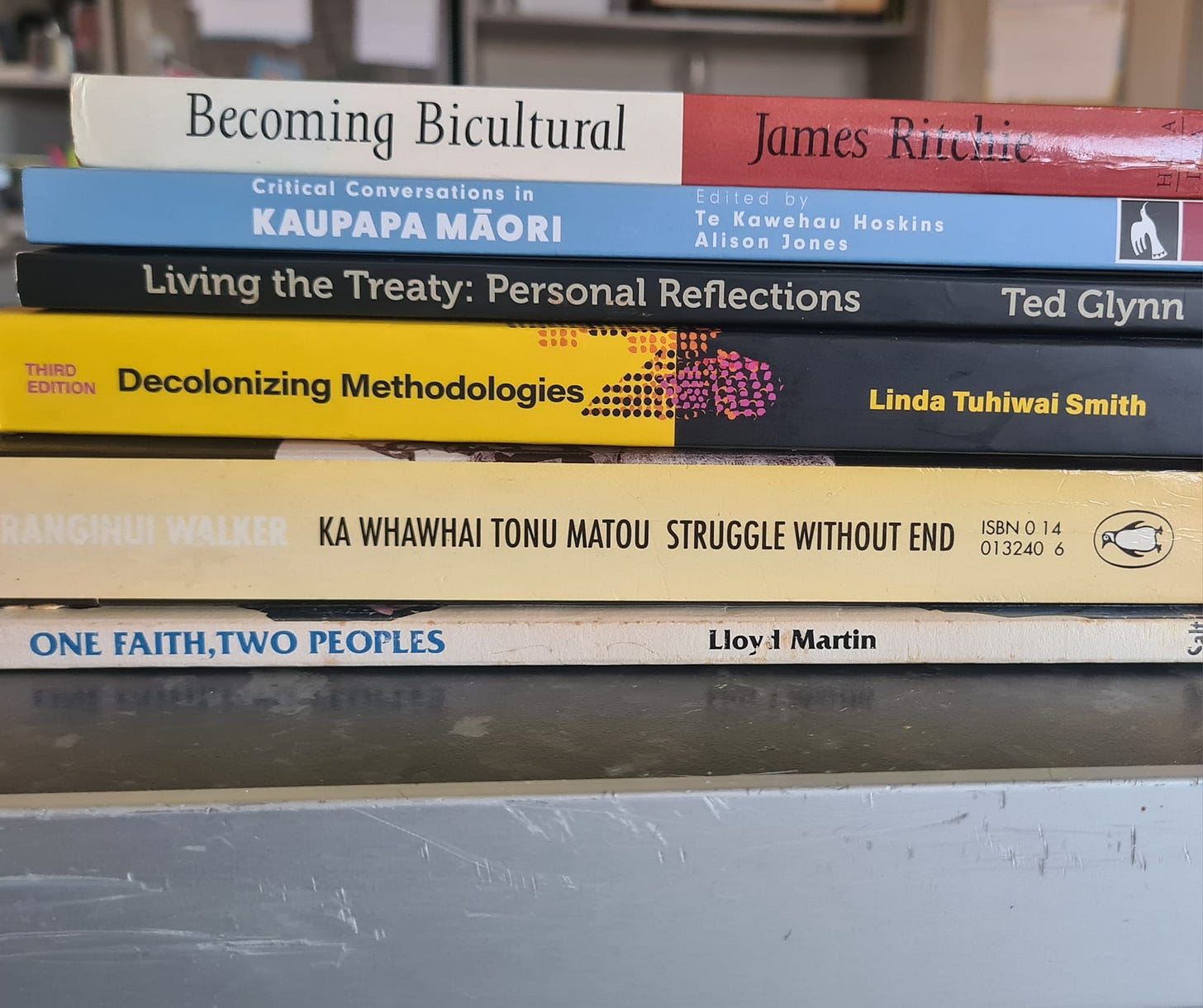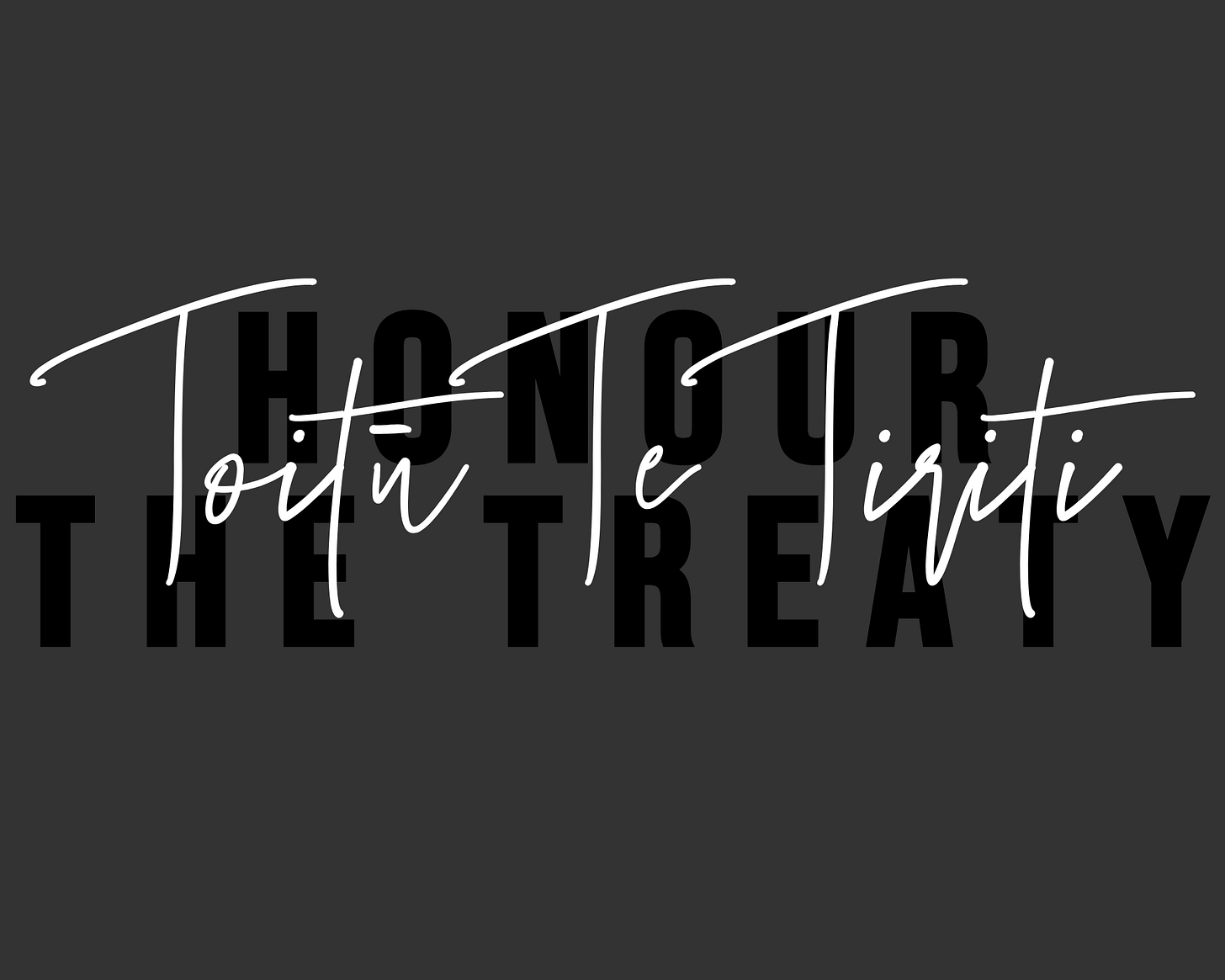Waitangi Day 2024
Looking back to move forward: Reflections on learning
With Waitangi Day (our country’s annual marker of the anniversary of the signing of Te Tiriti o Waitangi/The Treaty of Waitangi) around the corner, I’ve been reflecting on my own journey of understanding of what it means to be tāngata tiriti/people of the treaty. Being Pākehā, it is Te Tiriti o Waitangi that gives me, alongside all non-Māori people, a right to live in New Zealand.
As a teen growing up in the rural Waikato in the 80’s and 90’s, I gave very little consideration to Waitangi Day. The Pākehā cultural milieu in which I existed told me that we all had the same opportunities in life and racism was a thing of the past. It never occurred to me to challenge this embedded assumption.
It wasn’t until I read S.J. Gould’s The Mismeasure of Man as a fresher at university that my thinking was challenged. In his book Gould carefully chronicles the racist fallacies built into psychological testing, including IQ tests, and the way in which power maintains itself. He documented the way in which 19th century European men believed themselves to be the pinnacle of creation, justified this assertion through ever-changing goalposts, and embedded it into policy making - all the while pretending it was “science” that made them superior (as opposed to rigging the system).
The following year, I read Lloyd Wright’s One Faith, Two Peoples. Now a little dated (it was published in 1991 after all!), for a teen with limited exposure to anything outside of Pākehā understandings, it shifted my thinking once more. Across both books I began to be able to see the assumptions of cultural hegemony embedded into everyday Pākehā life, the beliefs of Western superiority permeating various institutions, and the reduction and dismissal of any other worldviews as “superstitions”.
While these were the texts that started me on thinking more critically about culture and values, there were many more texts along the way. I’ve bought and shared several books over the decades! However, the journey started with being curious, being open to thinking and reflecting, and continued with a willingness to dialogue and figure out how to do things differently.
Reading is my jam (clearly!) but if reading books is not your thing, there are many other ways to engage in dialogue and critical thinking. Treaty training, conversations, listening, and reflecting all contribute. It’s not a tick box exercise so much as it is nurturing understanding and growing a relationship.
I found that once I could identify and articulate my own cultural values, this opened up a whole new world of interesting conversations. Like being able to admit that I find ticking a checkbox list far easier than developing reciprocal relationships (good ol’ transactional Pākehā values at play!), tis a work in progress for sure!
There are many ways we, as Tāngata Tiriti, can be the type of Treaty partners our ancestors imagined. The detail of what that will look like in each of our lives will vary, but underpinning it always are the values held within Te Tiriti, values of reciprocity, respect for each other, and the decision to work together for the benefit of all.
Books pictured in the first image:
Becoming Bicultural, by James Ritchie
Cultural Conversations in Kaupapa Māori, edited by Te Kawehou Hoskins & Alison Jones
Living The Treaty: Personal Reflections, by Ted Glynn
Decolonising Methodologies, by Linda Tuhiwai Smith
Ka Whawhai Tonu Matou, by Ranginui Walker
One Faith Two Peoples, by Lloyd Martin
Other recommended reads (for Pākehā):
Healing Our History, by Robert & Joanna Consedine;
Resistance: An Indigenous Response to Colonisation, edited by Maira Bargh;
Being Pākehā, by Michael King; and
Colonising Realities/Maori Myths, by Ani Mikaere.



